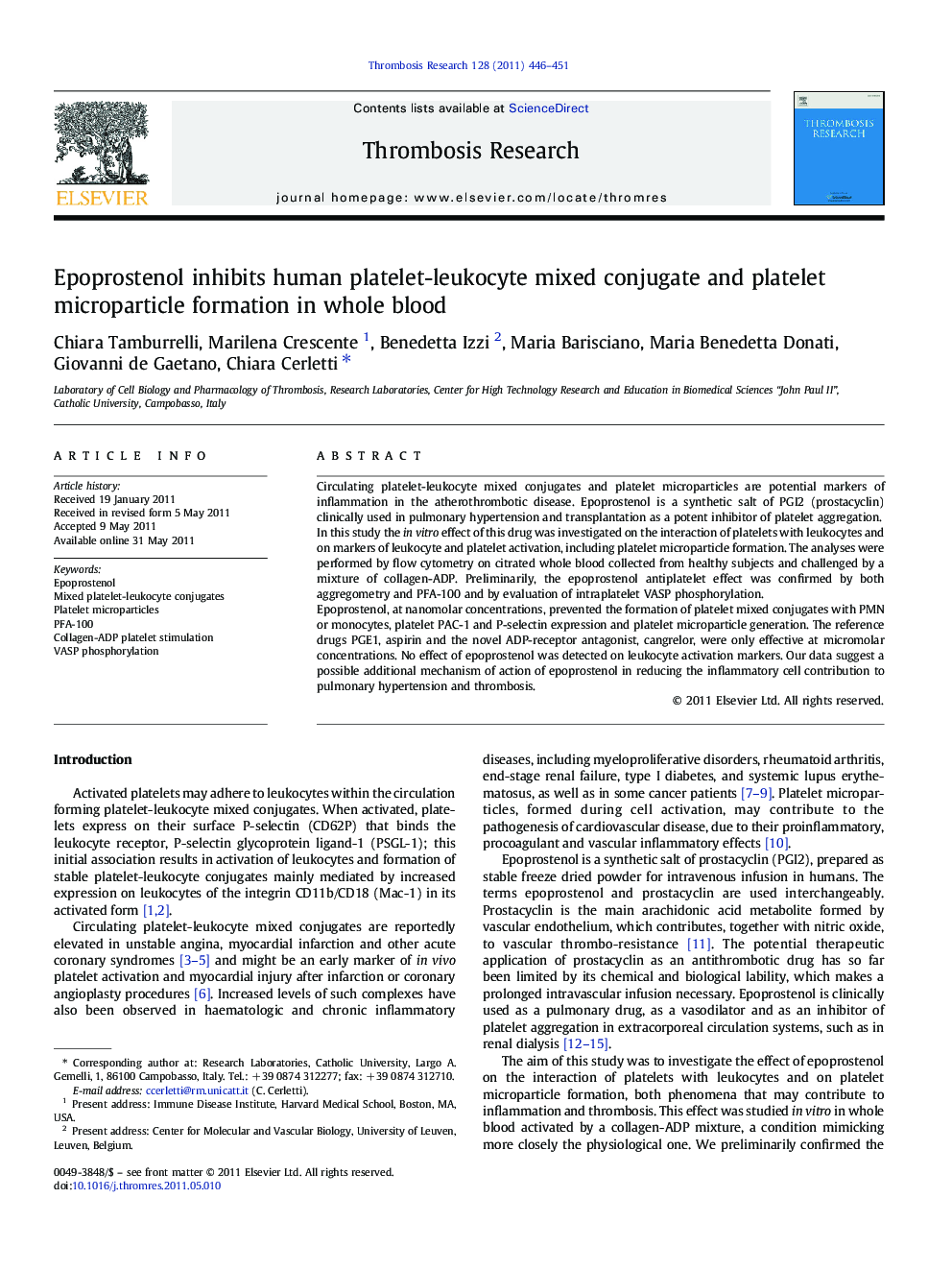| Article ID | Journal | Published Year | Pages | File Type |
|---|---|---|---|---|
| 3029052 | Thrombosis Research | 2011 | 6 Pages |
Circulating platelet-leukocyte mixed conjugates and platelet microparticles are potential markers of inflammation in the atherothrombotic disease. Epoprostenol is a synthetic salt of PGI2 (prostacyclin) clinically used in pulmonary hypertension and transplantation as a potent inhibitor of platelet aggregation.In this study the in vitro effect of this drug was investigated on the interaction of platelets with leukocytes and on markers of leukocyte and platelet activation, including platelet microparticle formation. The analyses were performed by flow cytometry on citrated whole blood collected from healthy subjects and challenged by a mixture of collagen-ADP. Preliminarily, the epoprostenol antiplatelet effect was confirmed by both aggregometry and PFA-100 and by evaluation of intraplatelet VASP phosphorylation.Epoprostenol, at nanomolar concentrations, prevented the formation of platelet mixed conjugates with PMN or monocytes, platelet PAC-1 and P-selectin expression and platelet microparticle generation. The reference drugs PGE1, aspirin and the novel ADP-receptor antagonist, cangrelor, were only effective at micromolar concentrations. No effect of epoprostenol was detected on leukocyte activation markers. Our data suggest a possible additional mechanism of action of epoprostenol in reducing the inflammatory cell contribution to pulmonary hypertension and thrombosis.
